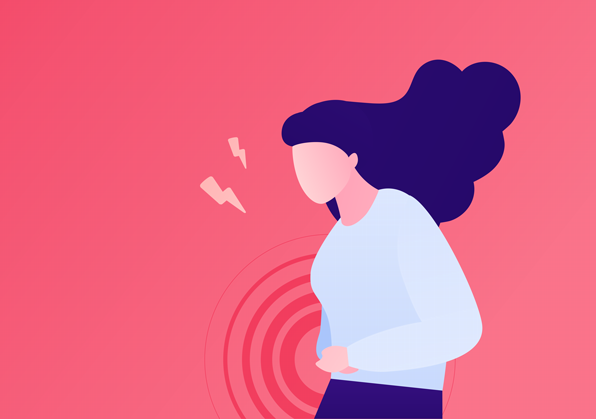If you have just found out that you’re pregnant, but don’t want to be, you may be experiencing feelings of panic, fear or confusion. Some women may even feel shame, particularly those in certain cultures where abortion is seen as a taboo subject. However, it’s important to know that you are not alone – 21 in every 1000 women in England and Wales will undergo an abortion before the age of 45 – and there are many resources that can support you in whatever path you choose to take. By educating yourself on the options available to treat an unwanted pregnancy, you can make the right decision for you.
Dr C. Grainger, Consultant Obstetrician and Gynaecologist at The Gynae Centre, says, “Having an abortion may not be an easy decision to make when you are faced with an unwanted pregnancy; however, clearing up any uncertainty around abortion options can help you make a decision confidently. We can assure you that both medical and surgical abortions are generally safe procedures, and despite misconceptions, there are no long-term health risks linked to abortion and it is not associated with future infertility, ectopic pregnancy or birth defects. We can provide advanced ultrasound screening to confirm that the procedure was successful.”
At The Gynae Centre, we have a success rate of up to 96% for medical abortion. Other options include abortion pills by post, as well as surgical abortions. If you’re not sure about the differences between these terms, don’t worry – we will explain what they mean and help you understand which one could be the right choice for you.
Unwanted pregnancy: Taking a pregnancy test
If you have had sex recently, and you experience a missed period or symptoms of pregnancy (nausea, tiredness, sore breasts or bloating), you should take a pregnancy test right away.
Most home pregnancy tests can detect a pregnancy from four weeks after the first day of your last period, while some early detection pregnancy tests claim to detect pregnancy up to a week sooner. If you are certain that you do not want to be pregnant, we advise not relying solely on a home pregnancy test, as it can produce a false negative. Instead, opt for an early pregnancy scan, which can confirm a pregnancy from five days following your first missed period. Once the pregnancy has been confirmed, you can discuss your next steps with your doctor.
Could a pregnancy test show a false positive?
Home pregnancy tests work by detecting the hormone hCG (human Chorionic Gonadotropin), which appears in high levels during pregnancy. It is highly unlikely that hCG will be picked up by a pregnancy test when you are not pregnant. However, this may occur if you have recently had an abortion, miscarriage, ectopic pregnancy or, in very rare cases, a tumour.
When is it too late to take the morning after pill?
The morning after pill, or emergency contraceptive pill, can prevent a pregnancy if taken correctly and within the right timeframe, which is within five days after unprotected sex (it is more likely to be effective the sooner it is taken). It works by delaying ovulation (the process in which an ovary releases an egg).
If your pregnancy test is showing a positive result, it is too late for you to take the morning after pill. Taking it while pregnant is not recommended, but it will not initiate an abortion. If you do not want to be pregnant, you should book a consultation with a doctor to talk through your options.
What are the different types of abortion?
Depending on how far along you are in your pregnancy, and whether it is straightforward or complex (for example, an ectopic pregnancy), you may be offered one of the following options:
Medical abortion pills by post – up to 10 weeks
In 2019, a decision was made by the UK Health Secretary to temporarily allow women to undertake an early medical abortion at home up to the tenth week of pregnancy. This became a permanent scheme in 2022. This service is often referred to as pills by post.
If you are found to be suitable to receive your abortion pills by post following a telephone consultation with one of our friendly and empathetic consultants at The Gynae Centre, you will be sent two types of pills – mifepristone and misoprostol – within two to three working days. Your consultant will explain to you how and when to take these pills, and what will happen after taking them, so that you can be fully prepared.
You will experience cramping and bleeding as your body expels the pregnancy, and this can last for between one to two weeks.
Medical abortion – up to 10 weeks
If you would prefer to have a medical abortion consultation and begin your treatment in person, you can attend The Gynae Centre, where your consult will assess you before you take two types of medication at the same time, or at a 24-to-48-hour interval (with the second type of medication being taken at home).
The abortion medication that you receive at the clinic is the same as what you would receive if you opted for the ‘pills by post’ option.
Surgical abortion – between six to 15 weeks
A surgical abortion is a procedure typically recommended from around six to 15 weeks into pregnancy. It may be chosen for various reasons, including personal preference, medical necessity, or if a medication abortion is not suitable or has not been effective.
There are two main types of surgical abortion:
- Manual vacuum aspiration (MVA): This is a gentle, low-intervention method. It involves using a small, handheld device to create suction and remove the contents of the uterus. The procedure is brief and can be carried out under local anaesthesia.
- Machine aspiration: Often used in hospitals, this method uses an electric pump to create a stronger vacuum. It is typically performed under general anaesthesia due to the more intense suction, which can cause more discomfort.
Seeking support for your abortion
Making the decision to have an abortion can be incredibly difficult, and it’s completely normal to feel overwhelmed, uncertain or emotional during the process. It’s important to lean on those you trust – whether that’s a partner, friend, family member or therapist – and to seek clear, compassionate advice from experienced medical professionals, such as the team at The Gynae Centre.
If you are struggling to discuss your circumstances with those you know personally, there are free listening services available, such as those operated by Abortion Talk, a confidential, pro-choice talkline.
While it’s helpful to talk things through, it’s equally important to remember that the decision is yours to make. No one else can decide what’s best for your body, your health and your future. Whatever your reasons, choosing to have an abortion is a personal decision – and you have the right to make it without pressure or judgement.
If you are considering an abortion and want to talk through your options in a safe, supportive and confidential setting, we’re here to help. Book a consultation online or by calling 020 7580 8090.






